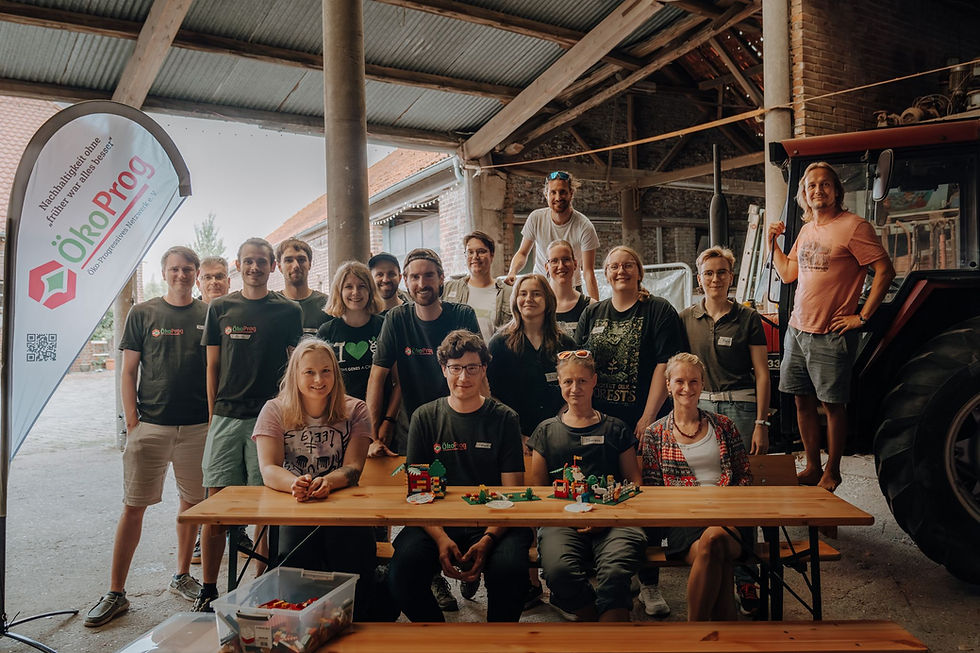ÖkoProg Live
- Taskscape Associates
- Aug 5, 2025
- 2 min read
Updated: Oct 6, 2025
Moritz Fritschle shares insights from project research on behavioral factors in agri-environmental program design.

The ÖkoProg Live Event 2025 brought together leading voices in sustainable agriculture and environmental policy, providing a platform for innovative research and evidence-based solutions. Among the notable presentations was the contribution from Moritz Fritschle, who shared insights from his work within the H2020 FRAMEwork project, focusing on the crucial role of behavioral factors in agri-environmental program design.
Fritschle, a PhD student in environmental economics at the Institute for Environmental Systems Research (IUSF) at the University of Osnabrück, presented research that bridges the gap between theoretical policy design and practical farmer implementation. His work within the FRAMEwork project explores how understanding farmers' identities and behavioral motivations can significantly improve the effectiveness of agri-environmental programs.
The ÖkoProg Live Event, organized by the Öko-Progressives Netzwerk e.V. (Eco-Progressive Network), proved to be an ideal venue for this type of interdisciplinary research. The organization, which describes itself as promoting "sustainability without 'the good old days,'" focuses on evidence-based environmental solutions that serve as an interface between scientific findings, social debate, economic implementation, and political work.
Mortiz reports that:
"I am really greatful that I could present my work from FRAMEwork at the ÖkoProg Live Event. Why behavioural factors such as farmers' identities should be taken into account when designing agri-environmental programmes was a complement to the great talks before on topics like agrobiodiversity in landscapes and new approaches to food production".
Fritschle's presentation on behavioral factors in agricultural policy design complemented the event's broader focus on agrobiodiversity and innovative food production approaches. His research emphasized why traditional top-down policy approaches often fall short when they fail to account for the complex decision-making processes of individual farmers.
The FRAMEwork project's approach, as presented by Fritschle, represents a growing recognition within environmental policy circles that successful biodiversity conservation and sustainable agriculture programs must account for the human element. By understanding how farmers perceive themselves, their role in the landscape, and their relationship with environmental stewardship, policy makers can design more effective and widely adopted programs.
This behavioral economics perspective aligns perfectly with the ÖkoProg network's mission of developing science-based transformation strategies for a sustainable future. The organization's focus on making scientific findings comprehensible and developing them through inclusive discussion creates an ideal environment for research like Fritschle's, which seeks to translate complex behavioral insights into practical policy applications.
The ÖkoProg Live Event 2025 demonstrated the value of bringing together researchers, policy makers, and practitioners to discuss the multifaceted challenges of sustainable agriculture. Fritschle's contribution from the FRAMEwork project highlighted how European research initiatives are advancing our understanding of the intersection between human behavior and environmental outcomes.
The event's emphasis on evidence-based approaches to sustainability, combined with its focus on practical implementation, provided an ideal platform for sharing the FRAMEwork project's insights on how behavioral considerations can enhance the design and effectiveness of agri-environmental programs across Europe.



